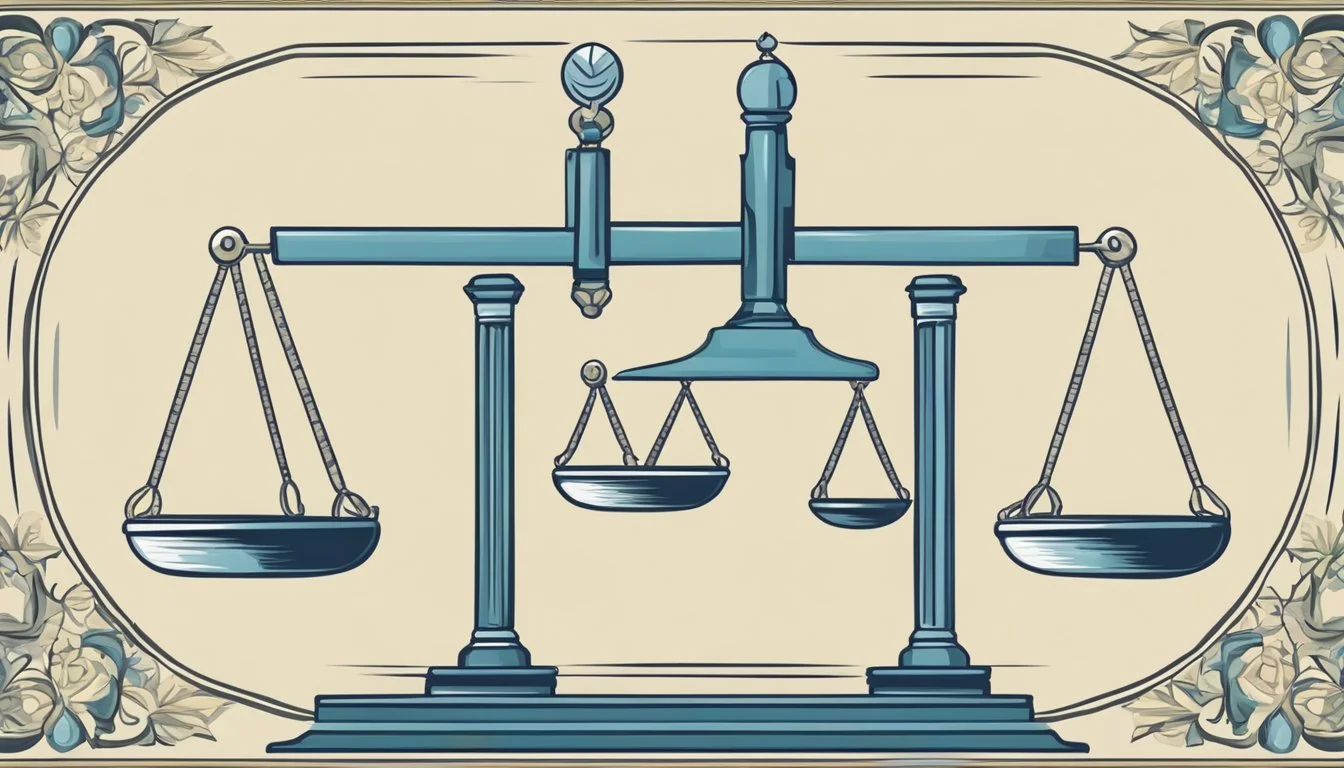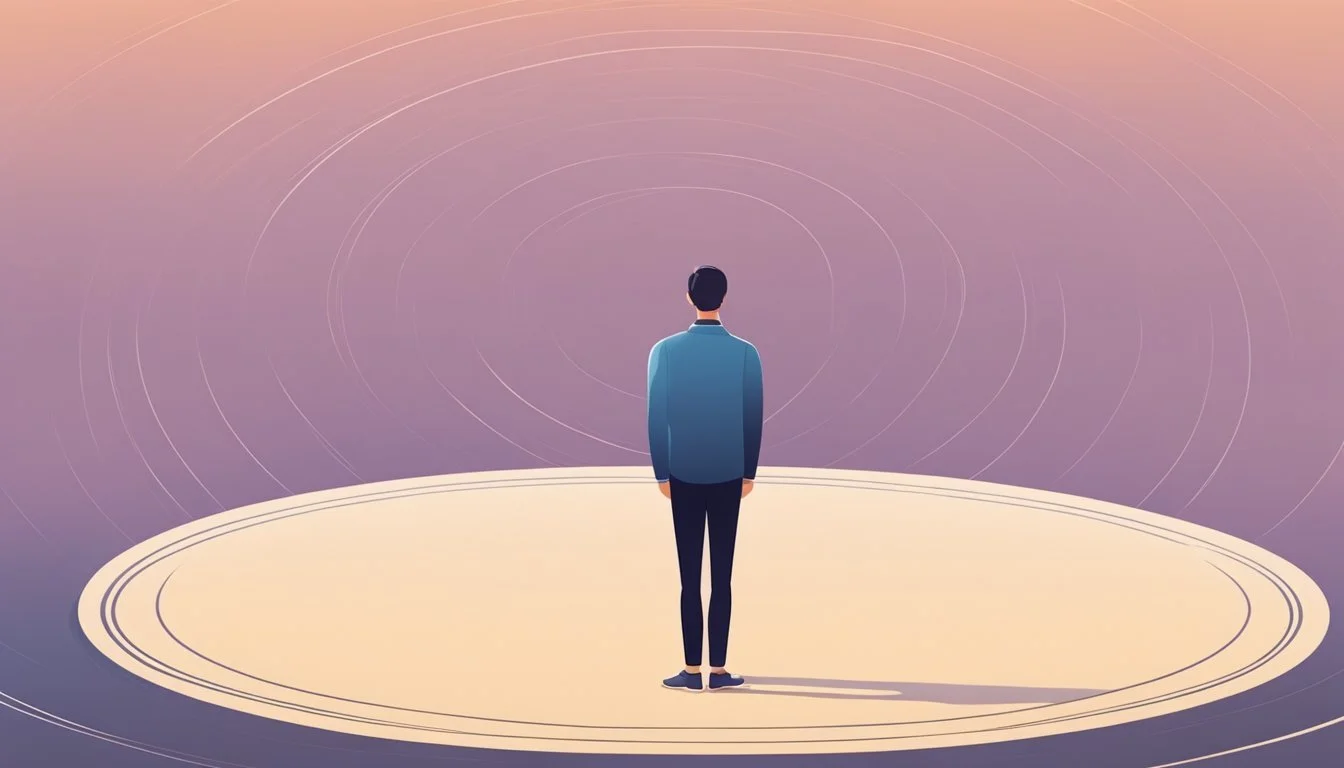7 Reasons Why Independence is Important in a Relationship
Enhancing Mutual Respect and Growth
Maintaining individuality within a relationship is a cornerstone of a healthy partnership. Many people believe that to be truly successful in a relationship, both partners must retain a sense of self and independence. This balance allows for personal growth and a stronger, more resilient bond between partners.
Cultivating independence means each person can pursue their own interests, maintain a unique identity, and not lose themselves within the relationship. This approach can lead to better communication, increased mutual respect, and a healthier dynamic overall.
1) Fosters Personal Growth
Independence in a relationship encourages personal growth. When each partner has the space to pursue their interests, skills, and hobbies, it enriches the relationship and the individuals within it. This mutual encouragement cultivates a sense of self-worth and accomplishment.
Engaging in personal growth activities helps partners feel more fulfilled and motivated. They can bring new experiences and perspectives to the relationship, enhancing communication and connection. Growth individually translates to a stronger, more dynamic partnership.
Supporting each other's personal endeavors creates a foundation of trust and respect. It shows that both partners value each other's individuality and are committed to their personal and collective progress. Independence can be a driving force for continuous improvement and happiness.
For more insights, read about nurturing personal growth in relationships.
2) Encourages Mutual Respect
Independence in a relationship fosters mutual respect. When both partners maintain a sense of individuality, they realize each other's strengths and capabilities. This recognition builds admiration and respect, essential elements of a healthy partnership.
Being independent allows each person to pursue their interests and goals. This encourages partners to see each other as complete individuals, not reliant on each other for fulfillment. This acknowledgement cultivates a space where both parties appreciate and respect one another's autonomy.
Mutual respect also thrives when boundaries are set and honored. Independent partners naturally understand and respect each other's need for personal space and time. This mutual understanding prevents the relationship from becoming overbearing or suffocating, reducing conflicts related to dependency issues.
Having distinct social circles and hobbies further nurtures respect. Each partner brings unique experiences and perspectives into the relationship, enriching the bond. It also prevents the relationship from becoming a single focal point, thus encouraging a healthy balance.
The concept of mutual respect is echoed widely in relationship advice. Psychology Today highlights that mutual respect prevents discussions from falling into destructive patterns, keeping the relationship resilient to challenges. For more insights, visit their article on the need for mutual respect in a relationship.
3) Enhances Self-Esteem
Independence in a relationship significantly enhances self-esteem. When individuals maintain their own identities and pursuits, they develop a sense of personal accomplishment. This can reinforce their confidence in their abilities and decisions.
Having the ability to fulfill one's own needs contributes to a healthy self-image. This means that individuals are less likely to depend on their partners for validation. They build self-worth based on their own achievements and strengths.
Building confidence and celebrating personal successes, even small ones, is crucial. Acknowledging strengths and learning from failures without harsh criticism aids in personal growth. This, in turn, fortifies self-esteem.
Research has established a link between good self-esteem and relationship satisfaction. Higher self-esteem encourages healthier interactions and a balanced partnership. It positively impacts how individuals view themselves and their roles within the relationship.
To cultivate self-esteem, it's important to engage in activities that affirm personal capabilities. This could include pursuing hobbies, advancing in one’s career, or engaging in social activities. Recognizing and celebrating these personal milestones is key to maintaining robust self-esteem.
Independence fosters respect within a relationship. When each partner sees the other as a capable and self-sufficient individual, mutual admiration grows. This dynamic contributes to a more satisfying and balanced relationship.
4) Reduces Dependency
Independence in a relationship helps reduce dependency by encouraging individuals to fulfill their own needs. When each person maintains their personal interests and hobbies, they are not solely reliant on their partner for happiness.
Having separate activities and friendships allows partners to grow individually. This personal growth contributes to the overall strength of the partnership by ensuring both can support each other without losing their identity.
Reduced dependency also enhances mutual respect. If each partner can handle their responsibilities and emotions independently, it fosters a balanced and healthy dynamic. This balance prevents one partner from feeling overwhelmed by the other's needs.
By cultivating independence, both partners can enjoy a sense of freedom within the relationship. This freedom ensures they remain connected without feeling confined. Activities like yoga, painting, or learning a new language can be excellent ways to maintain personal space and fulfillment.
Maintaining independence prevents the issue of neediness. A relationship where one or both partners are overly dependent can drain energy and create tension. Independence ensures that the relationship remains a space of mutual support rather than a burden.
Independence cultivates a healthier, more balanced relationship, where both can thrive individually and together. The combination of personal growth and mutual respect creates a foundation for a lasting, fulfilling relationship.
5) Boosts Problem-Solving Skills
Independence in a relationship significantly enhances an individual's problem-solving skills. When partners maintain their independence, they often face challenges on their own before seeking assistance. This fosters resilience and resourcefulness.
Facing problems individually means they develop unique strategies for tackling issues. They gain confidence in their ability to manage difficulties without immediate reliance on their partner, which strengthens the relationship.
Independent individuals often approach problems with a clear and unbiased perspective. Their ability to think critically and make informed decisions is sharpened, which is beneficial in joint problem-solving scenarios within the relationship.
Moreover, self-reliance promotes better time management and prioritization. When people manage their own issues efficiently, they bring these skills into the relationship, leading to more effective handling of shared challenges.
A partner's problem-solving ability can be crucial during conflicts. Independence helps them stay calm and focused, seeking solutions rather than escalating the situation. This is particularly beneficial in maintaining harmony and mutual respect.
Learning from varied experiences enhances one's problem-solving toolkit. Trying new experiences, as suggested by Calm, contributes to self-reliance and problem-solving capabilities.
Thus, independence not only benefits the individual but also enriches the relationship with improved problem-solving skills.
6) Maintains Individual Identity
Maintaining individual identity is crucial in a healthy relationship. Each partner needs the space to pursue personal interests without feeling overshadowed. This approach helps both individuals grow independently while fostering mutual respect.
Personal identity involves passions, hobbies, and goals unique to each person. In a relationship, it's important to continue nurturing these aspects. This doesn't mean neglecting the partnership but rather enhancing it by bringing new experiences and perspectives.
Having distinct identities prevents dependency on the partner for validation or happiness. This way, each person contributes their best selves to the relationship. When both partners maintain their individuality, they create a more balanced and resilient bond.
In a relationship where individual identities are respected, conflicts are less likely to arise from feelings of suffocation or loss of self. Both individuals can enjoy togetherness without losing their sense of self. This balance is key to a thriving long-term partnership.
Independence allows partners to appreciate each other's uniqueness. Celebrating differences while sharing common goals enhances the relationship. You can learn more about the importance of maintaining personal identity from this article on The Knot.
Ensuring both partners have the space to be themselves promotes a healthier, more satisfying relationship. It's about striking a balance between unity and individuality, creating a partnership that's rich and diverse.
7) Promotes Healthy Boundaries
Independence in a relationship encourages both partners to establish and respect personal boundaries. Each individual can maintain their own space, which is crucial for personal growth and self-care.
Healthy boundaries prevent one partner from becoming overly reliant on the other. They help to avoid feelings of resentment or being overwhelmed, which can occur when personal limits are not respected.
By valuing independence, partners can better communicate their needs and expectations. This clarity fosters mutual respect and understanding, vital components of a thriving relationship.
Establishing boundaries also helps individuals take responsibility for their own actions and emotions. This promotes a balanced relationship where neither partner feels burdened by the other's issues.
When each partner has the freedom to pursue their own interests and hobbies, it strengthens their individual identity. This, in turn, enriches the relationship as both bring unique experiences and perspectives to the table.
Boundaries enable both partners to feel secure and valued. This creates a safe space for expressing feelings and addressing conflicts constructively.
For more on the significance of boundaries, see why healthy relationships need boundaries.
Understanding Independence in Relationships
Independence in relationships enables both partners to maintain a sense of self while staying connected. By fostering personal growth and mutual respect, it enhances the quality of the partnership without compromising individual autonomy.
Definition and Concepts
Independence in relationships refers to the ability of each partner to maintain their own identity, interests, and responsibilities. It involves having separate hobbies, friendships, and goals.
This doesn’t mean detachment or lack of care but rather the capacity to enjoy personal freedom while being committed to the partnership. Independence encourages personal growth and ensures that each partner isn’t overly reliant on the other for emotional support or validation.
The concept also includes balanced decision-making, where both partners feel equal in their contributions and authority. It helps prevent codependency and promotes a healthier, more resilient relationship dynamic.
Historical Perspectives
Historically, relationships were often defined by dependency, especially in traditional societies where roles were rigidly assigned. Men typically held power and financial control, while women were expected to be dependent and supportive.
Changes began in the mid-20th century with the feminist movement advocating for women's rights, including the right to personal and financial independence. This cultural shift encouraged both genders to value autonomy within relationships.
Today, couples are increasingly aware of the benefits of maintaining independence. This evolution reflects a broader societal trend towards valuing equality and personal freedom, reshaping how relationships function in modern contexts.
Benefits of Independence in a Relationship
Independence in a relationship fosters personal development and strengthens communication between partners, leading to a healthier and more balanced partnership.
Personal Growth
Maintaining independence allows individuals to pursue their own interests, hobbies, and goals. When partners support each other's personal growth, it can lead to a more fulfilling and enriched relationship.
Personal growth helps build self-confidence and self-worth. Each person is encouraged to develop their unique skills and passions, contributing positively to the relationship. This also includes the ability to spend time alone without feeling insecure, which can prevent codependency.
Moreover, having personal space to grow ensures that both partners bring new energy and perspectives into the relationship. This mutual respect for each other’s individuality can strengthen the bond and encourage a supportive environment where each person can thrive.
Enhanced Communication
Independence in a relationship enhances communication by establishing clear boundaries and expectations. When individuals maintain their own identities, they are more likely to communicate openly and honestly with each other.
This is because they feel more secure and valued, knowing their partner respects their personal space and choices. Effective communication is critical for resolving conflicts and misunderstanding, as it builds trust and understanding.
Furthermore, partners who enjoy personal independence are often better at listening and expressing their needs and desires. This form of communication reduces misunderstandings and fosters a deeper emotional connection. By balancing personal freedom with shared time, couples can cultivate a relationship that is both nurturing and respectful.
Challenges and Misconceptions
Navigating independence within a relationship presents several challenges, particularly in balancing time for oneself with shared experiences and dealing with common misunderstandings about independence.
Balancing Independence and Togetherness
Maintaining a healthy balance between independence and togetherness is critical. Couples may struggle to find the right equilibrium, often swaying too far in either direction. One key issue is the fear of growing apart, which can lead individuals to spend all their time together, potentially causing dependency.
Spending time apart does not equate to lack of love or interest. Instead, it fosters personal growth, which in turn enriches the relationship. Couples should encourage pursuits of individual interests and hobbies, thus ensuring both personal fulfillment and shared joy when they come together.
Effective communication is crucial. Partners should openly discuss their needs for independence and togetherness, setting boundaries that respect both individual space and couple time. Regular check-ins can help to adjust these boundaries as the relationship evolves.
Common Misunderstandings
There are numerous misconceptions surrounding independence in relationships. A common myth is that seeking independence indicates dissatisfaction or a lack of commitment. On the contrary, maintaining individuality often strengthens attachment and respect between partners.
Another misunderstanding is that independence means isolation. Independence is about sustaining personal identity and interests, while still being emotionally and physically present for one's partner. It's about mutual respect and support, rather than creating literal distance.
Finally, some may view independence as a selfish endeavor. True independence ensures both partners feel valued and have the freedom to grow. It's essential to recognize that a well-balanced relationship thrives on both interconnectedness and individual strengths, leading to a healthier, more dynamic partnership.






